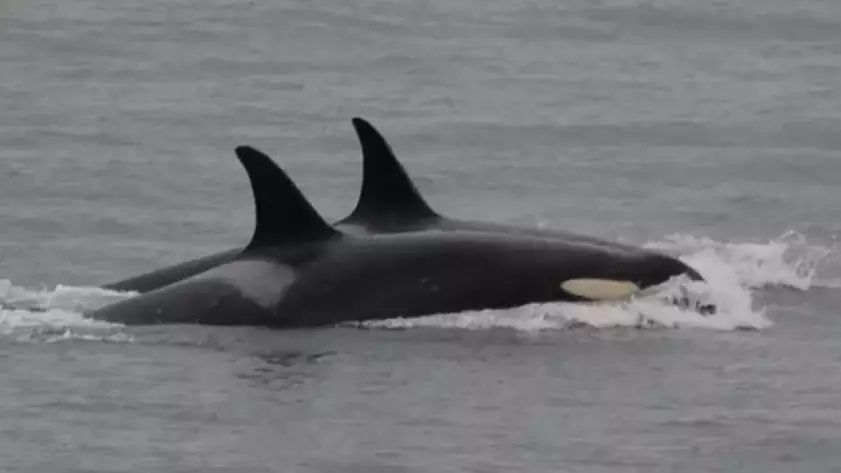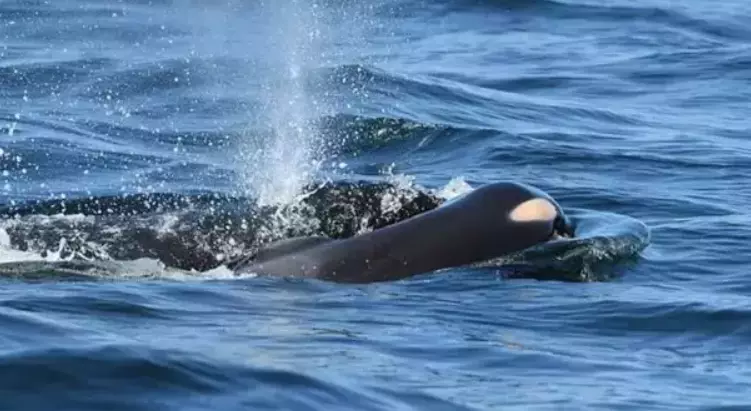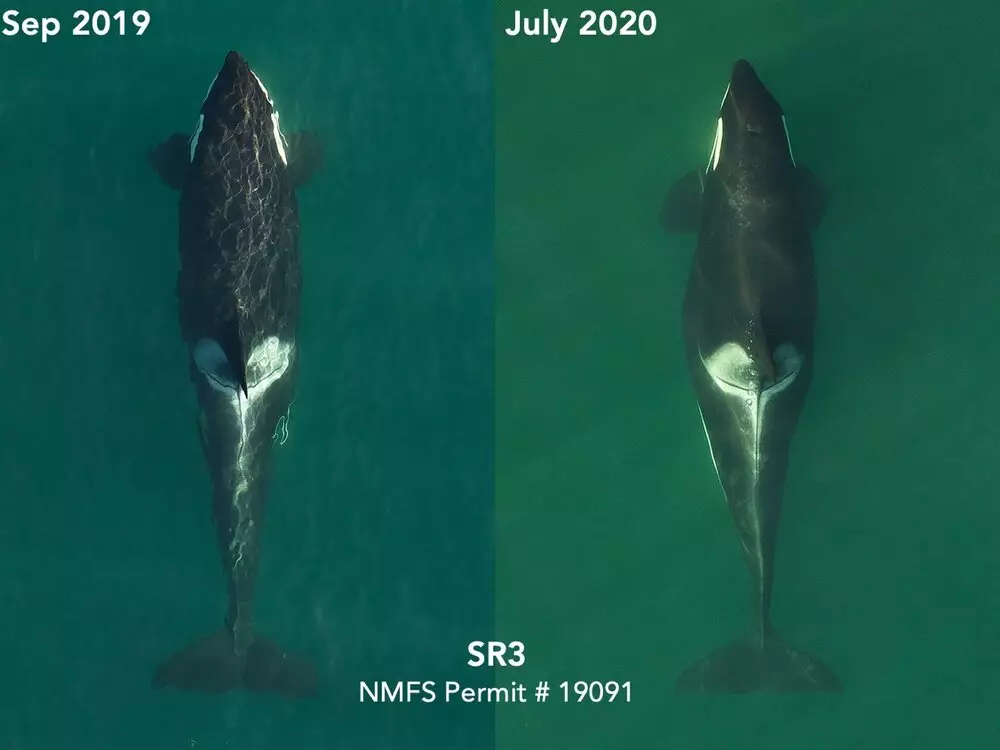
A whale who carried her dead new-born calf for 17 days while swimming around 1,000 miles is pregnant again according to scientists.
Tahlequah, also known as J35 to researchers, is one of a number of South Resident killer whales that is pregnant, scientist from Washing have said.

Orcas have been known to carry their dead babies for around a week, but experts said that Tahlequah set a 'record' in 2018.
Advert
Refusing to let her calf sink, Tahlequah pushed it towards the surface of the Pacific off the coast of Canada.
Ken Balcomb, senior scientist at the Centre for Whale Research, said in 2018: "We've seen mother whales carry dead babies briefly, for parts of a day. We saw one a few years back for a couple days. But this sets a record."
Tahlequah lives in a large community, made up of three pods with 72 whales.
Drones caught footage of several pregnant whales, but scientists have warned that while pregnancies aren't unusual within the Southern Resident killer whales, the majority of recent ones have not ended in successful births.
Advert
Tahlequah's 2018 baby was the first for the whales in three years, but there has since been two more calves born in two of the pods that are both still alive.

In a statement, the researchers said: "Studies by our colleagues at the University of Washington have shown that these reproductive failures are linked to nutrition and access to their Chinook salmon prey.
"So, we hope folks on the water can give the Southern Residents plenty of space to forage at this important time."
Advert
Speaking to the Seattle Times Times scientist John Durban, from Southhall Environmental Associates, said: "People need to appreciate these are special whales in a special place at a vulnerable time. These whales deserve a chance."
While Holly Fearnbach, marine mammal research director for the nonprofit organisation SR3 added that several of the younger whales are looking thin.
She noted: "There are stressed whales out there, critically stressed."
Scientist have urged boats to stay away from the whales to give them space while they continue their pregnancies, which last between 15 and 18 months.
Featured Image Credit: Center for Whale ResearchTopics: World News, Animals